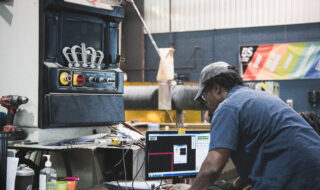December 17, 2024
New Mandates on Illinois Businesses Going Into Effect January 1
January 1, 2025, will usher in a number of new mandates on Illinois businesses. These mandates include:
An Increase in the Illinois Minimum Wage
PA 101-0001 (SB 0001) raises Illinois’ minimum wage from $14/hour to $15/hour. The minimum wage for tipped workers will rise to $9 an hour and the minimum wage for youths under 18 will increase to $13 an hour.
New Job-Posting Requirements
PA 103-0539 (HB 3129) requires Illinois employers with 15 or more employees to include a pay scale and description of employee benefits in job-specific postings. Covered employers must also inform their employees of promotional opportunities within 14 days of making an external job posting for a position.
New Guidelines for Disclosure of Employee Personnel Records
PA 103-0727 (HB 3763) requires employers with five or more employees to provide copies of personnel records to employee representatives upon a text-message request from the employee. Specifies additional types of documents subject to employee inspection. Streamlines the process for employees to bring civil action against their employers for alleged violations of the Personnel Records Review Act.
Expanded Attorney General’s Powers and Employee Protections under the Whistleblower Act
PA 103-0867 (HB 5561) expands the scope of the Whistleblower Act and increases the penalties assessed against employers. Grants the Attorney General authority to intervene in civil cases or to initiate civil action and seek damages on behalf of the state under the act.
Regulation of Employer Verification and Re-Verification of Employee Work Authorization
PA 103-0879 (SB 508) specifies that employers may not put in place stricter work authorization verification or re-verification requirements than required by federal law. Regulates employer actions if a record discrepancy is discovered during the verification or re-verification process.
Limit on Construction Covenants Not to Solicit
PA 103-0921 (SB 2770) limits the use of covenants not to solicit for individuals employed in construction who are not in management, engineering, architecture, design, or sales. The limitation also does not apply to employees who are “shareholders, partners, or owners in any capacity of the employer.”
Increased Employee Access to Paystubs
PA 103-0953 (SB 3208) requires employers to maintain copies of employees’ paystubs for three years after the date of the payment. Upon request, employers must furnish a copy of the paystubs to the employee within 21 calendar days of the employee’s request for the paystubs. Former employees may request a copy of their paystubs for up to a year after separation from employment. Employers are not required to grant more than two requests within a 12-month period. Employers who offer electronic paystubs to their employees in a manner the former employee cannot access after separation must offer a separating employee a copy of the past year of the employee’s paystubs.
Extended Timeline for Employees to File Human Rights Charges Against Employers
PA 103-0973 (SB 3310) more than doubles the period for civil-rights charges to be filed with or issued by the Department of Human Rights against employers, extending the period from 300 calendar days to two years. The extension puts Illinois outside the regional and federal norms for filing human rights complaints against employers.
Gag on Employers Discussing the Pros and Cons of Unionization with their Employees
PA 103-0722 (SB 3649) limits employer rights under federal law to hold mandatory workplace meetings to discuss the employer’s perspective on unionization with its employees, exposing the employer to civil liability and penalties if the courts determine it took adverse action against an employee for failing to attend a meeting. The limitation also extends to broadly defined “religious” and “political” issues. The legislation empowers so-called “interested parties” to bring civil action if they believe an employer took adverse action against an employee for not attending a meeting on workplace unionization, religious issues, or political issues.
NFIB is a member-driven organization advocating on behalf of small and independent businesses nationwide.
Related Articles














